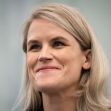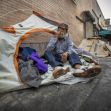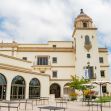Legal advocates and homeless families filed a class-action lawsuit against the City of New York in a Manhattan Federal Court on November 24th. The lawsuit argues that the City failed to provide reliable internet access for children attending distance learning in homeless shelters.
As the nation's largest school district prepares to continue distance learning after the holidays, the lawsuit claims there is a discrepancy in the internet connectivity that Mayor Bill de Blasio said would be installed and the connectivity that the children are actually receiving.
The lawsuit also claims that the mayor's initial promise was vague and that it disproportionately impacted students who did not otherwise have access to the internet. Many students need an internet connection with high bandwidth to attend classes that are streamed online. Although the City is providing that connection, because it's an unreliable one, the students are missing out on class time, causing them to be on the receiving end of an inequitable education as compared to their peers.
The Legal Aid Society put out a statement on Twitter explaining, "We just filed a class action lawsuit against the de Blasio Administration for its failure to provide students who reside in City shelters access to reliable internet service so they can attend school remotely."
One lawyer, Grant Mainland, who is representing the Coalition for the Homeless in the lawsuit, explains, "these children and hardly better off than they were in March." Mainland goes on to say that these children have always been on the radar since the start of the pandemic as having a lack of access to quality internet connectivity.
For lawyers like Mainland, along with City teachers and parents, a major concern is that the lack of access to digital connectivity will only hamper access to quality education for a group of kids who are at risk, to begin with.
The Digital Divide Widens
As of September, 73% of the nation's 100 largest school districts have turned to remote learning as the only method to return back to school during the pandemic. As the nation enters flu season, that number is expected to rise due to the spike in cases of coronavirus.
While many families can transition into digital learning, there is still a staggering amount of children who cannot either because of lack of access to quality internet or access to a reliable device. In partnership with five other agencies, the U.S. Census Bureau conducted a Household Pulse Survey to measure the different factors that go into remote learning.
Results of the survey show that over 4.4 million households with school-aged children do not have consistent access to a computer, while 3.7 million households with school-age children do not have reliable access to the internet.
The reasons for the lack of internet connectivity vary by households. However, 34% of households expressed that they could not afford it while another 4% said that access to an internet connection was not available in their area.
When it comes to internet connectivity and remote learning, at least 42% of students who do not have the internet at home will face obstacles in getting connected for school.
The gap in internet connectivity faced by children in New York City's homeless shelters is a microcosm of what is going on all around the nation. However, the situation in New York City is unique in that although the City has stepped in to fill the internet gap, it's clear that merely providing access is not enough, especially if the connectivity is slow and unreliable.
New York City's mayor acknowledges the need for quality internet access, sharing the following with reporters, "We've had a digital divide, we've had a huge disparity of who gets access to the internet (and) who doesn't. But more and more, we understand that we have to create a society in which everyone has equal access."
This latest lawsuit against the City comes on the heels of a three-year-old lawsuit that was recently settled. The settlement came after New York City sued Verizon for failing to meet its goal of installing Fios fiber-optic broadband, voice, and TV services so that 100% of the City's residents had access. In that settlement, Verizon agreed to extend its coverage, allowing 500,000 additional residences to be covered.






